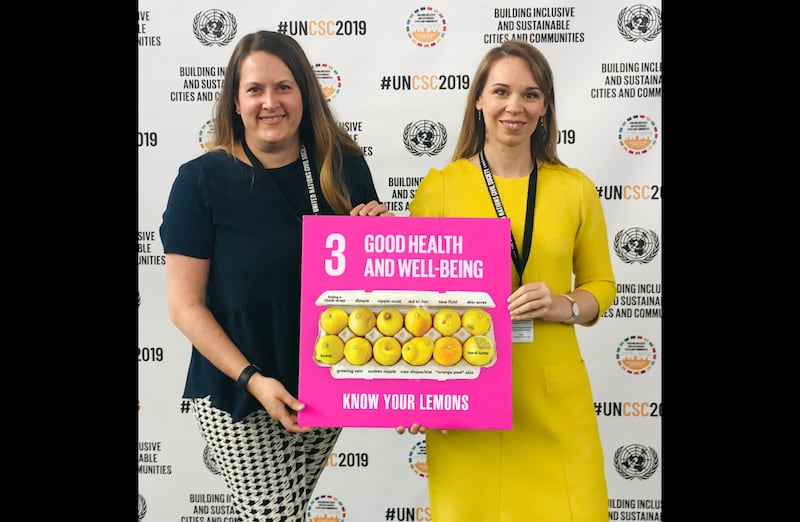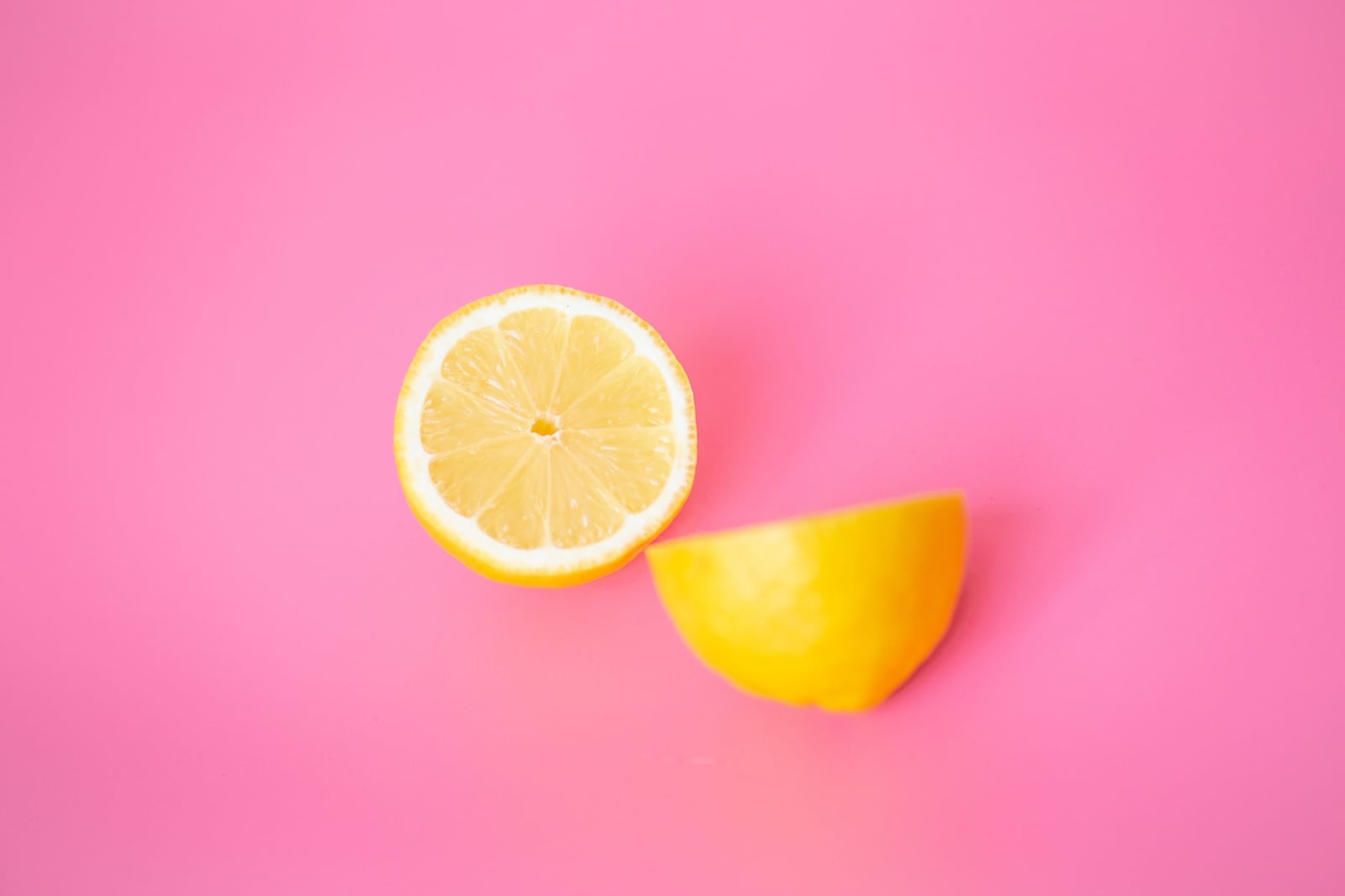The Founder Series is a weekly column by and about Utah founders and how they got to where they are today. Click here to read past articles in the series.
I grew up in a very entrepreneurial and creative household where there was always lots of space to come up with ideas and try them out. My first entrepreneurial endeavor came when I was six and set up a lemonade stand on the side of the road. Immediately after my first sale, I thought it was magic to make something and get money in return.
I guess you could say that I’m still in the lemon business, it just looks different now.
Like many other founders in the nonprofit space, the cause behind my organization came from personal experience—both of my grandmothers died from breast cancer. The first died when my Dad was only 12, so I never got to meet her, and my second grandmother died when I was starting my master’s in design at Utah State University.
After my second grandmother’s death, I realized that I didn’t know much about how to manage my own breast health, and with two of my grandmothers both having breast cancer, I had no idea what that meant for me. I went to the Huntsman Cancer Library as a 22-year-old and was given pamphlets, websites, and books to read, none of which provided the answers I needed in a clear or concise manner—so I decided I wanted to do something about that.
As a designer, I knew I could create change by making breast health information accessible and actually engaging so I started to experiment with visual metaphors for breasts…melons, jugs, cones, etc. After weeks of gathering objects, I started photographing 12 lemons in an egg carton to illustrate the 12 symptoms of breast cancer and my nonprofit, Know Your Lemons was born.
Ironically, that first image I took of the lemons on the windowsill of my graduate design office at USU is still the same image we use today, and I think it looks just as fresh!
A short time after graduating from USU, I became the creative director at a company in Logan but eventually left that job to move to London and pursue my Ph.D. in Design Thinking for Healthcare. As a doctoral student, I lived on £10,000 in one of the most expensive places in the world but somehow managed to make it work.
I worked in academia for a few years but soon felt the pull to go back to my design roots when my close friend passed away from breast cancer in her mid-thirties. Heartbroken by another cancer-caused death, I quit my job as a professor and dove into Know Your Lemons full-time, relying on my savings and the occasional freelance job to get by.
Looking back, quitting my job was terrible timing from a financial stability perspective (I had just become a single mother) but sometimes the only way to get from point A to point B is by taking a leap of faith. Soon after, I registered Know Your Lemons as a non-profit in the US and began working remotely from my home in England.
A year later, the campaign went viral and that’s when things really started to fall into place.

Taking over social media to solve a global problem
The campaign had been doing well on social media for a while but things immediately transformed when a breast cancer patient, who was also fed up with the traditional breast cancer education campaigns, shared my lemon infographic to her followers. Within three weeks, we had millions of eyes on our campaign as media networks picked up our mission for better breast cancer education in different countries all over the world.
It all happened pretty fast—to keep up with the demands, I worked 18-hour days and replied to newspaper journalists over email between in-person interviews, all while my two-year-old daughter hung out under my desk! One time, I even appeared on BBC Breakfast (the equivalent of the Today Show in the UK) and other international news outlets. Another time, a singer dedicated a song to the campaign and I got to see her perform it live, which was pretty amazing.
Going viral for the first time was an absolute whirlwind, but it felt incredible to have years of work finally recognized with my small team of four. Who knew my little campaign could go from a passion project to something that was actively helping women identify cancer symptoms? Today, we’ve reached nearly 1.5 billion people online with the #knowyourlemons campaign, and that’s just tracking our statistics in English.
The impact of social media was felt right away, but I wanted to broaden our reach even further with in-person teachers and an exclusive phone app. To date, we have trained over 420 in-person volunteer educators in 54 countries who have taught over 51,000 people, and that number is growing all the time. It’s my favorite thing to see a report come in from a volunteer who is teaching new students around the world.
Our app is to reach people on an individual basis and take the work out of figuring out how to manage their breast health. Our app includes a personalized risk assessment and a period tracker to time self-exams and mammogram reminders. We also have Mona Lisa, who is a breast exam coach that will walk you through a self-exam and make sure you’re checking everything well. We also provide tools to book an appointment and recommendations for what to do if a symptom is found. We want people to feel confident instead of panic!
All of that is possible because of how the app is designed. Although I’d never created an app before, it was shortlisted for a Webby award its first year. Our little charity app was tested on friends and family but it ranked alongside giants like Peloton and Headspace—I am incredibly proud.
While we’ve become masters of operating on shoestring budgets, like many other non-profits, finding funding and building our business network has been absolutely crucial to our growth as a nonprofit organization. It’s no secret that business partnerships are the lifeblood of our education, fundraising efforts, and overall growth as an organization.For example, last October we had an incredible week-long campaign with Crumbl that resulted in $72,000 and the breast health education of 1.5 million Crumbl customers. The event was incredibly well-received, and some customers even thanked Crumbl for the education and the opportunity to get involved with us. It’s partnerships like these that allow us to continue doing our work.
The future of breast health
I know there is still more work to be done in helping patients with cancer so I’m working on a new business, Dandelion Health, that’s redesigning the way patients are told they have cancer. It uses the visual of a dandelion to communicate staging, pathology, and treatment. Some pharmaceutical companies and the Metastatic Breast Cancer Alliance are supporting it and it is launching this year for breast cancer patients.
So far, it’s been tested in 25 clinics and built with patients and oncologists for the last seven years. It’s had really promising results and I’m excited to see this get in the hands of patients soon. Just like Know Your Lemons, I want patients to feel informed, empowered, and just a little more in control of a difficult situation. It’s using the same visual approach that I used for Know Your Lemons, but in a way that links the healthcare team with patients to help them communicate more equally without having to use medical jargon to explain treatments and make decisions.
In my experience, thoughtful and beautiful design makes any user experience better, and that’s definitely evident in campaigns around cancer prevention. Design improves the reception of every message and makes every piece of information more memorable, and it’s been so rewarding to see that in real-time with Know Your Lemons. I’m grateful that my design and entrepreneurial experiences are able to serve the global community, and I can’t wait to reach the next amazing person with our life-saving message.

